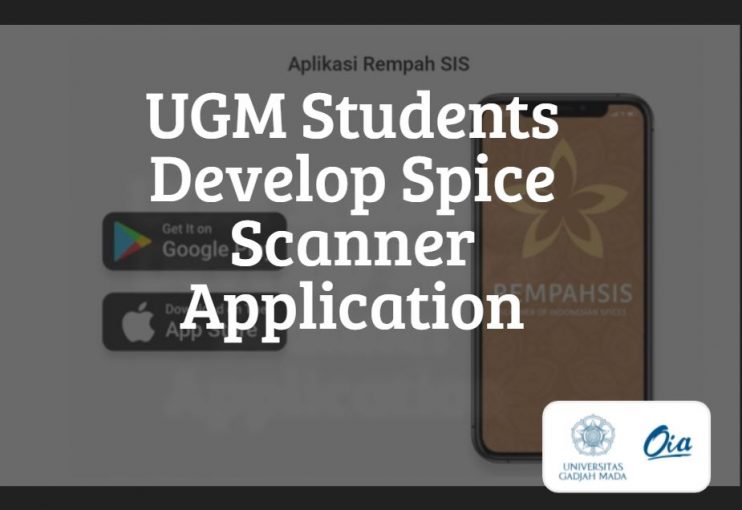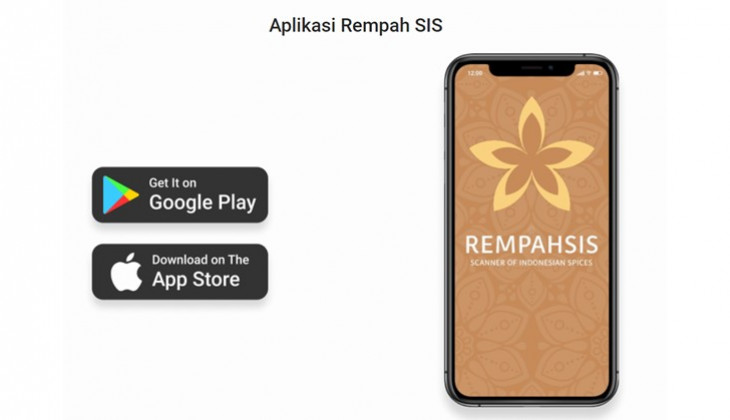
UGM Students Develop Spice Scanner Application
Faced with the Covid-19 pandemic, the community has made numerous attempts to maintain health and boost body immunity in order to protect themselves from the disease. The utilization of herbal substances derived from spices was one of the initiatives made at the time.
Indonesia, which must be noted, boasts a wide variety of spices. Spices in the house, according to various studies, can boost the body’s immune system.
The many types of spices and their various benefits are difficult to remember. In reality, many members of today’s youth are unfamiliar with spices, both their names and varieties.
To make it easier for the public to identify spices whose names or types are unknown, the UGM student team created a scanner application called Spices SIS (Scanner of Indonesian Spices). This SIS application was developed by Adha Maula Effendi, Rosalina Diani Prima Anargya (Pharmacy 2020), Iskan Mustamir and Karunia Perjuangan Mustadl’afin (Information Technology 2020), with the guidance of Dr. Indah Soesanti, S.T., M.T.
“Through the PKM-KC program, we made this application and managed to get full funding from the Directorate General of Higher Education, Ministry of Education and Culture, RI. I’m sure some young people today are not familiar with the spices around them, even those in the kitchen. I’m sure no one knows the name and type,” said Adha at UGM, Thursday (9/9).
He added that practical items developed as a result of current technology, such as instant spices, cause individuals, particularly the younger generation, to be unable to detect or discriminate between spices. In fact, the Indonesian people consider these spices to be a treasure.
“Yes, the community, including the younger generation, should be aware of the cultural wisdom that exists in their surroundings. As a result, we developed a spice scanner application that allows individuals to identify spices more easily utilizing scanning techniques,” he explained.
Rosalina added that this application can function as a digital catalog of several spices in Indonesia. This application will also provide additional information about spices, such as information on the characteristics, properties, potency, and content to recipes. Starting from the herbal ingredients that exist in the community to cooking, and with this kind of information it is hoped that knowledge of spices can always live in the community.
Furthermore, she added, people can scan spices that they don’t know about by using the application. The application can scan spices directly or use photos of spices obtained from the device gallery.
“By using scanning techniques, it is hoped that people will find it easier to identify and distinguish spices than they have to search through the internet. This application is also available for free through the Google Play Store,” she added.
Rosita Nur Anarti, S.Pd., a history activist as well as a history teacher at a high school in Yogyakarta, said she was happy with the application. She hopes that this application can revive and maintain knowledge of spices in the community.
“So that later the community can also support the proposal for the Spice Route as a world cultural heritage which is being submitted by the Ministry of Education and Culture, Research and Technology to UNESCO,” said Rosita.
The government is targeting the Spice Route to become one of UNESCO’s cultural heritages by 2024. Therefore, the presence of this application can be proof that spices are one of the treasures of the Indonesian nation which are continuously strived to be preserved.
“Through this application, it is hoped that knowledge of spices will continue to be sustainable in the community because in addition to functioning to revive knowledge of spices in the community, this application also functions as a preserver of spice knowledge itself in the form of digital information,” she said.
Author: Agung Nugroho
Translator: Gabriel
Original article: ugm main website


Recent Comments